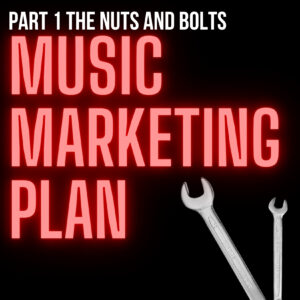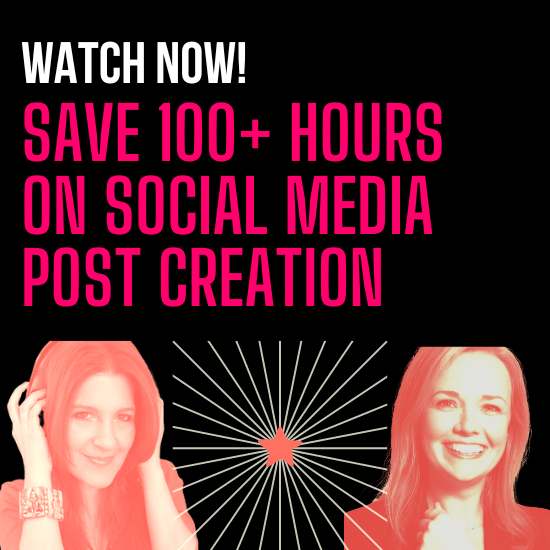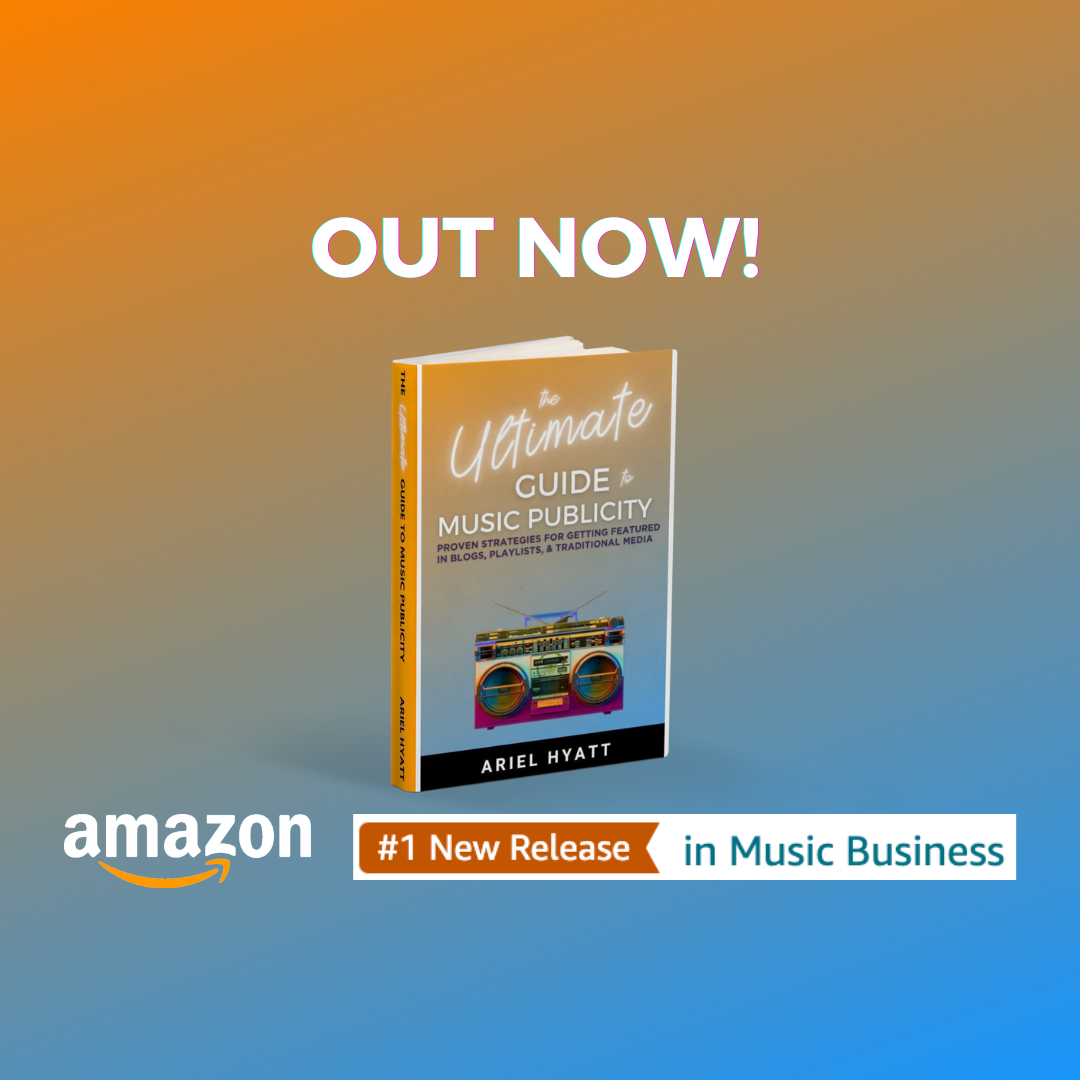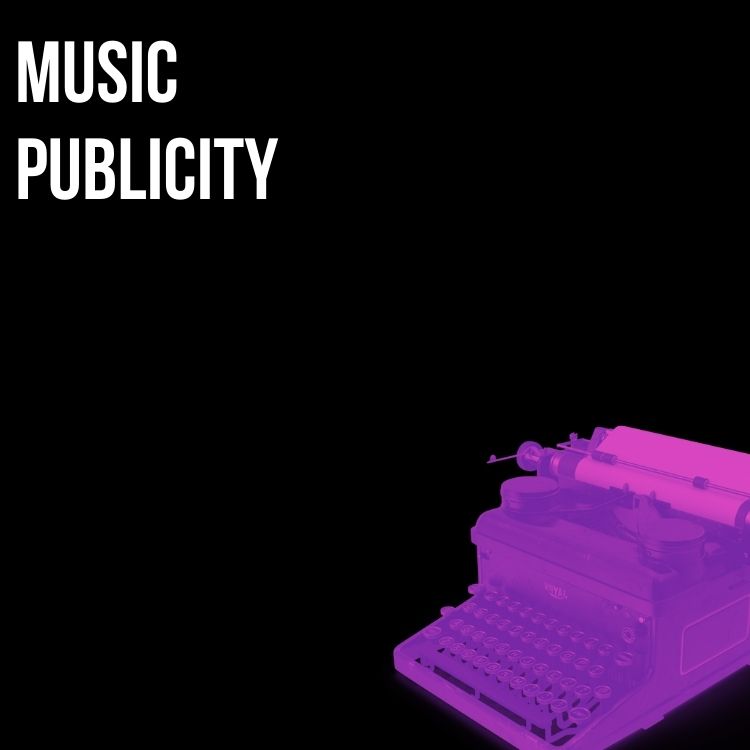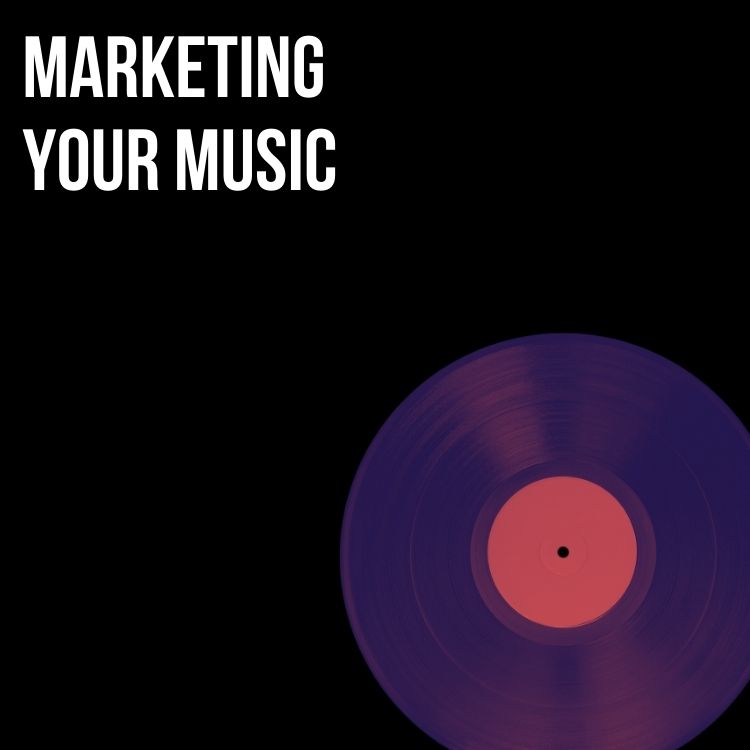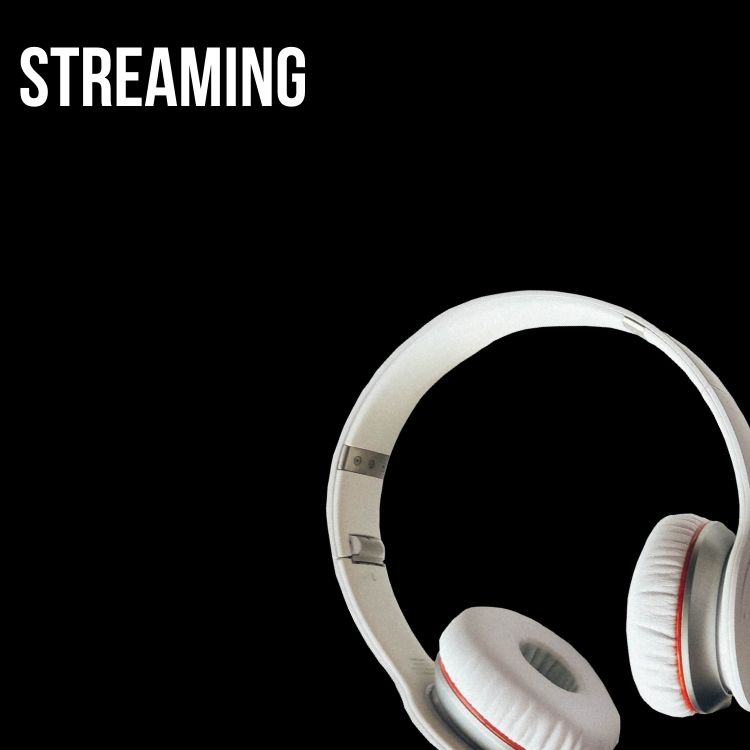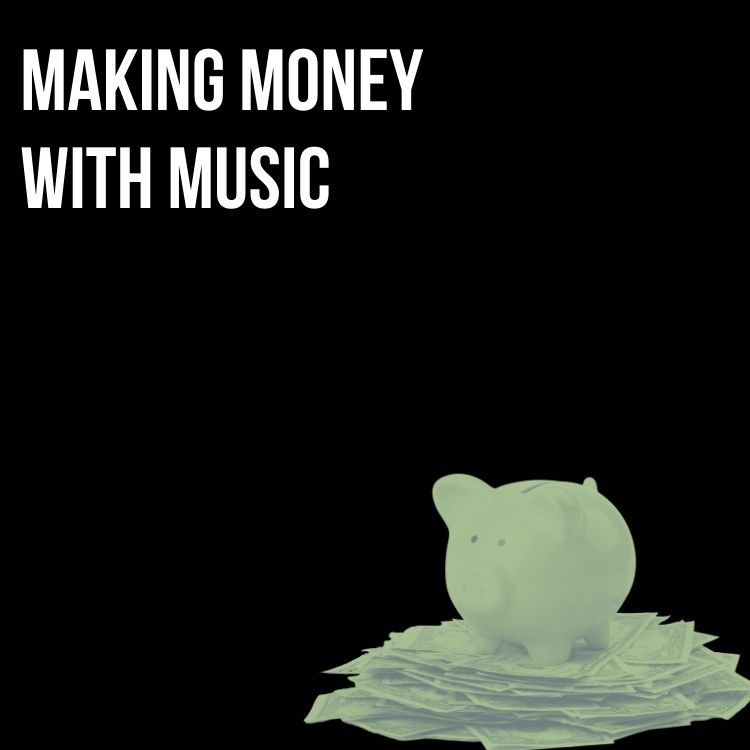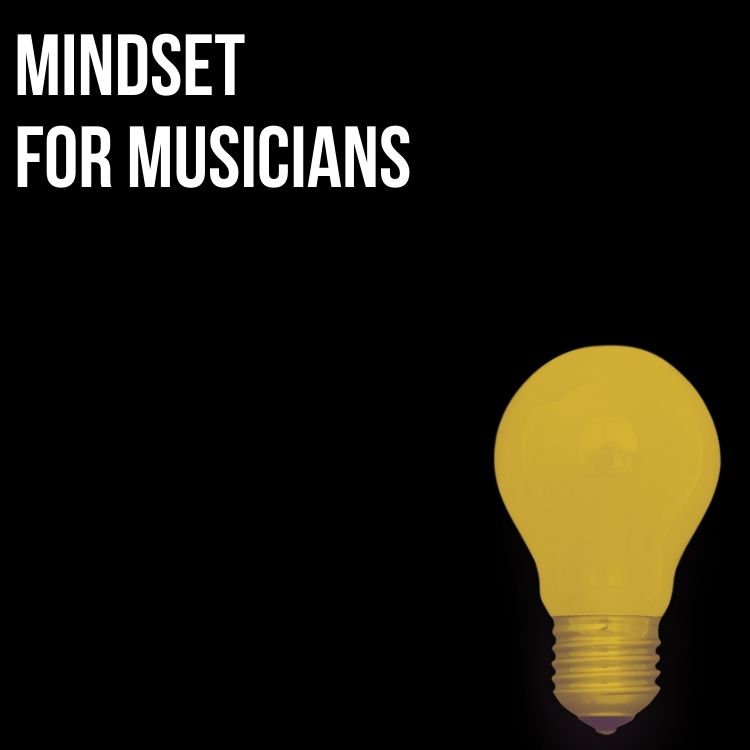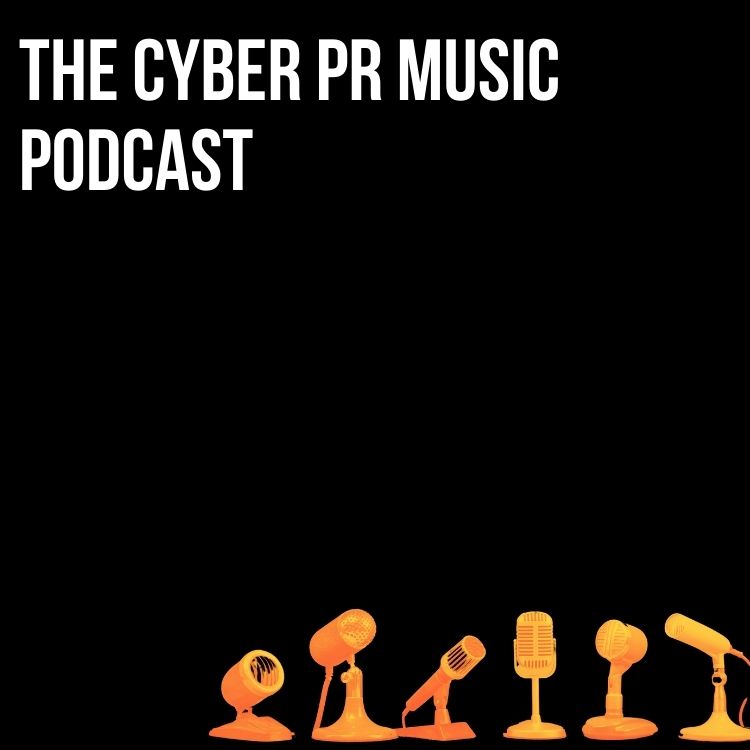
“Alone we can do so little, together we can do so much.” – Helen Keller
One key thing I have learned over all my years of attending workshops and conferences and garnering techniques from some of the world’s most successful people is that those people did not get there alone. Success takes support, as DIY is hard enough, but it shouldn’t mean you need to do everything without help. That’s why we’re offering some advice on how to find a music mentor.
I asked my friend Michael Walker of Modern Musician to co-author this post with me. He has created a community of artists who work with him and together to get support and level up.
We hear it all of the time – musicians call me up and say: “I NEED a manager, or If only I had a manager,” or a booking agent, or a record label, etc.
And we, in turn, say: “It’s hard to get a manager, an agent, or a label when you are just starting out.” However, it’s not hard to get some help!
For those of you in bands: Does this scenario sound familiar? One person is in charge of doing all of the business affairs, and the other band members just show up (sometimes not even on time). If you’ve got a band of hired guns, this sadly is your cross to bear.
Michael: “I hear all the time that one of the biggest struggles for people in a band is that the leaders have the most motivation and drive, and the other members are not necessarily on the same page. I think for us, we were lucky because we had six members of the band and all of us put off college to focus on the band, it was like our whole focus and all of us were equally put in it. I think that’s sort of rare, but probably part of the reason that we were able to do that was because we were so clear on our vision from the start. We knew that we were all in it together, we all wanted the same thing. I think one of the biggest challenges for a lot of artists who are kind of running into this issue, is that there might be a bit of a lack of alignment in terms of the other goals of each band member.
“Some members of the band may be in it for fun, or for an extra hobby. Maybe they have a 9-5 day job and feel pretty comfortable with that, and they don’t necessarily want to drop everything and invest full-time into the music. I think that a big part of it is just finding the right people to surround yourself with, that have the same vision as you, and that are aligned- especially if they’re like a part of your band. This might mean that you sit down together and have a conversation about “what do we want things to look like three years from now? Five years from now? 10 years from now?” I think everyone sharing that is going to bring up a lot of potential misalignments and clarify if it’s a good fit.”
There are a few options that you can consider for getting support.
Option One – Peer Mentoring – Create A Mastermind Group
However, if your band is considered an equal team, I highly suggest including your band members in your mastermind group. If you are the only active member of your band on the business side, that’s OK – you can build yourself some great support with non-band members.
So, if you are not at the stage where you can find a music mentor or you don’t have strong enough industry contacts to ask one, I suggest peer mentoring by creating your very own mastermind group.
Setting Up Your Own Peer Mentoring Mastermind
I suggest you create a group of four to six people – These people do not have to be in the music business, and it may actually be better if they are not. Your group also doesn’t have to be reaching for the same type of goals – they will, however, need your good input to achieve them, and you will need theirs.
Peer Mentoring Steps to Take
- Think of fellow mastermind-ers to invite who you admire.
- Choose people who are strong self-starters and who know how to get the job done, perhaps entrepreneurs, as having someone in your mastermind who runs a successful business will motivate you.
- Preset a scheduled date and time every month or twice a month. – don’t break your commitment – you need to keep this set time to achieve results. How you handle this mastermind group is critical to your success.
At Your Peer Music Mentor Sessions
- Come to each meeting with an agenda.
- Don’t make this a social hour – you are getting together to work. Choose an hour to socialize before or when you are all done with your meeting.
- Choose a scribe. One person should be in charge of writing down the minutes – what happened with measurable goals, actions, and results with dates set for each one. The scribe will e-mail the notes after each and every meeting so that everybody can keep up-to-date with each other.
- Hold each other accountable – set check-in times to stay on track.
Between sessions, you should be in touch a few times online to make sure measures are being met.
Option Two – Join An Accountability Group
A group that has already been established is another way to go. You won’t have to do all the work to set it up and you can join right in. There are many on Facebook. One in particular is worth looking into and that is The Rock/Star Advocates’ Rockstar Slackers. In Suz’s words:

Rock/Star Slackers™ creates a weekly structure for you to set goals and then work with INTENTION to accomplish them, as opposed to:
- letting yourself down, producing fewer songs per month than you want to
- booking fewer shows because you’re struggling to balance it with work that pays the bills
- brainstorming new ways to raise cash to record that next album and feeling it slip further and further away…
Suz charges a small monthly fee and you not only get the full support of the group you get her – so it’s WELL worth it! To have her on SLACK aka at the touch of your fingertips is invaluable as is connecting with other like-minded artists for support and collboartion.
Michael: “Mentorship is one of the best investments I’ve ever made. Surrounding myself with the people who have done the thing I want to do. This is like the difference between going on a cross-country trip with a map in your hand, versus going out and just doing it on your own. Of course you can figure it out on your own with persistence, but there are going to be a lot of wrong turns, you’ll be spending a lot of energy and money, and it’s going to take a lot more time than it would to find a music mentor- or someone with a map. Imagine a mentor is someone with a GPS, they can keep you on track and hold you accountable, which is so valuable.
“In terms of Mastermind Groups, those have been super valuable for me too, I heard the idea from “Think and Grow Rich” by Napoleon Hill, I read that book a few times and it’s been a game changer. In my business, when we were starting Modern Musician we had mastermind groups and they were so valuable.”
Accountability Group Steps to Take
- Think through what your budget is (there are plenty of groups that are free but it may be worth an investment)
- Research the right group for you – plenty of them exist on Facebook Groups or ask your musician friends who they follow and what they have participated in.
- Powerfully join your group and show up! You will not get results unless you are willing to put in the work and participate – so be sure that you block time each week to move your plan forward
Option Three – A Music Mentor & Service-Based Model
Having a hybrid of a mentor PLUS a company that has expertise in creating results in a given area is another option. This is the most expensive option outlined here, but it’s also where you will get methodology and high-level personal attention. Every single elite athlete has a trainer and successful business people often have executive coaches. When you find a music mentor for hire, you find the music business solution.
Michael: “I think that all of us are offering some sort of an Accountability Group in the sense that we all have community aspects to what we offer. I think it’s about finding people that you resonate with and are aligned with your goals when looking for an accountability group. Make sure they have experience working with people who have done the thing you want to do. Finding a group like that who are at a higher level is the way to invest in yourself, which is so important and will be the best investment you can make because it has a compound interest. We do that, Ariel does that, and Suz does that as well, and it’s just about doing some research to find someone you resonate with.”
Michael, Suz, and I all offer a mentor and service model.
At Cyber PR you can hire up to create a Total Tuneup which is a personalized one-year plan. They come with implementation hours so we can act as your personal assistant and get tasks handled for you. At the same time, we offer coaching and accountability partnerships as well as PR, and social media management if desired. My team works with you every step of the way to bring the plan we create for you to life.
Michael: “This is kind of my wheelhouse, I love this one. I have personally invested a lot throughout the last couple of years in mentors and hand down it is the best investment I have made yet. I see this as the GPS compared to the map. For example, if you have a video course, this is like having a map, and if you remember back in the old days without GPS, sometimes when you use a map you might occasionally question if you’re going the right way, and sometimes it’s hard to chart your progress, you may find yourself lost. But, of course, this is a million times better than doing the trek alone.
“What can sometimes happen with travelers who are being guided by a map, is that they may feel like giving up after making a wrong turn or questioning a route. Because at the end of the day, you are the one who is in charge of reading the map, there’s no one to direct you and check on you. The Mentor & Service Based Model is the next level up, just like a GPS system. You meet regularly, one-to-one, with someone who is giving laser-focused feedback on your situation. If you take a wrong turn, they can navigate you and recalculate your route back to put you on track.
“Something I’ve learned is the value of time versus the value of money. The more you grow, the more people you impact, and the more success you generate, you begin to realize that time is the most valuable asset you have. If you can save yourself hundreds or thousands of hours, that is something you’ll never get back. Anything that can save you time is a priceless investment because it gets you closer to your goals. It’s also a long-term investment because in the long run it will save you a lot of money because you will be making less mistakes, and your time does have monetary value.
“What I’ve found over and over again, is that the most successful people, the smartest people have invested in things that have saved them time and they work with people who have the experience to get a shortcut. If you don’t have a map, that’s a great starting point. But if you want to get the most leverage, find a music mentor – it is a really important step.
Accountability Group Steps to Take
- Think through what your budget is (there are plenty of groups that are free but it may be worth an investment)
- Research the right group for you – plenty of them exist on Facebook Groups or ask your musician friends who they follow and what they have participated in.
- Powerfully join your group and show up! You will not get results unless you are willing to put in the work and participate – so be sure that you block time each week to move your plan forward
Setting Achievable Music Career Goals Is Key
No matter what option you choose you will want to be SURE that you have achievable goals outlined. Be careful when setting your goals. Start with ones that you can achieve within the first month (redesigning your newsletter, re-writing your pitch, creating one livestream, etc.) so you feel like you are accomplishing small victories along the way.
My article on how to set goals and achieve them here.
Here are a few to get you started:
The Cyber PR Music Podcast EP 1: Goal Setting For Musicians (15 minutes with Ariel!)
5 Time Management Tactics Every Musician Must Know
Delegation for Musicians: a Guide for Getting Help and Support
3 Ways To Increase Artist Income – Part 1: Build Your Fanbase
Community Is Fun
The last advice I’ll give is: This process should be fun!
This is you creating your career as a musician, and it should feel like a joy, not a dreaded homework assignment. Go forth and mastermind.
Michael’s Parting Words: “One of the best pieces of advice I have ever gotten is to make sure that the five people we spend the most time with are people we want to emulate or people doing things you want to do. Whatever it takes to surround yourself with those people, you should do it. Whether that means you offer services to them, or you pay them, or you bring value to them to be around them. Make a list of those people and do your best to be around them.”
Subscribe for more!
Back to The Blog



